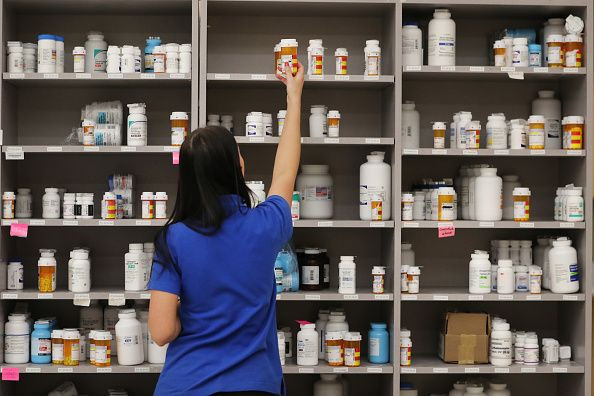Suicide Rate Higher Among Pharmacists, Study Finds
KEY POINTS
- Pharmacists had a higher suicide rate compared to the general population
- The numbers may have been higher amid the pandemic
- This shows the need to look at the work-related issues that may "precede" a suicide
Pharmacists are at a higher risk of suicide compared to the general population, a new study has found.
This highlights the problems health care workers have been dealing with for years.
In the new study, published in the Journal of the American Pharmacists Association on May 13, the researchers analyzed 2003-2018 data from the Center for Disease Control (CDC) and Prevention's National Violent Death Reporting System. The aim was to have a closer look at suicides among pharmacists in the U.S.
"Suicide is one of the leading causes of death worldwide, and estimates of suicide among health professionals are higher than the general population," the researchers wrote. "High rates of suicide among physicians and nurses have been described previously, but there is a lack of data for suicides completed by pharmacists."
The researchers found that the rate of suicides among pharmacists was about 20 per 100,000 pharmacists compared to 12 per 100,000 in the general population, the University of California, San Diego (UC San Diego) noted in a news release.
According to the researchers, this shows that the suicide rate among pharmacists is higher than in the general population.
More specifically, firearms were the most common means of suicide, followed by poisoning then suffocation.
While firearm use was quite similar among pharmacists and the general public, poisoning through opioids, benzodiazepines and antidepressants was actually more common among pharmacists, according to UC San Diego.
Since data were collected through 2018, it's possible that the rate may have been higher amid the pandemic.
"If we learned anything from the pandemic, it's that there is a breaking point for health professionals," the corresponding author in the study, Kelly C. Lee, PharmD of UC San Diego Skaggs School of Pharmacy and Pharmaceutical Sciences, said in the news release.
Pharmacists' responsibilities have significantly grown in recent years, Lee further noted. However, they have still been "expected to do them with the same resources and compensation they had 20 years ago."
"Pharmacists were significantly more likely to have a reported job problem, current treatment for mental illness, and suicide note and less likely to have a substance abuse issue," the researchers wrote.
The results then show a further need to have a closer look at the work-related issues that may "precede" a suicide, the researchers explained. This could help in developing suicide mitigation strategies.
They also highlighted the need for "necessary" efforts such as suicide screening and crisis support. Pharmacists are also urged to encourage help-seeking behaviors amongst themselves to aid mental health, the university noted.
"Mental health is still highly stigmatized, and often even more so among health professionals," Lee said, as per UC San Diego. "It's time to take a look at what our jobs are doing to us and how we can better support each other, or we are going to lose our best pharmacists."
If you have thoughts of suicide, confidential help is available for free at the National Suicide Prevention Lifeline. Call 1-800-273-8255. The line is available 24 hours, every day.

© Copyright IBTimes 2025. All rights reserved.






















